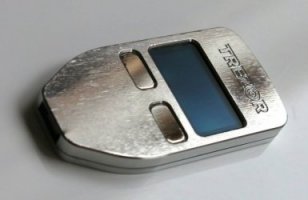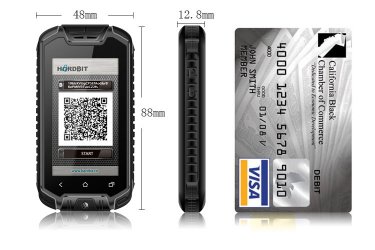Bitcoin wallet weeks behind

Hardware bitcoin wallets are like buses, it seems. You wait ages for one to come along and then two arrive at once.
Firstly, in aluminium and plastic flavours comes the Trezor from SatoshiLabs. Secondly, is Harbit’s plastic-only offering, albeit a rather rugged looking one. Both devices will be on the market shortly, offering bitcoiners a more secure way to store their coins.
While most bitcoin wallets are software-based and exist either online or on a computer or mobile device, hardware wallets (as the name implies) are dedicated devices aimed to more securely store a user’s bitcoins.
The advantage of these wallets stems from the fact that, since they don’t connect to the Internet, they offer greatly reduced exposure to potential hackers or malware.
Trezor hardware wallet
SatoshiLabs started accepting pre-orders of its hardware wallet last summer, with the devices originally scheduled to ship in October. However, that date was pushed back to January and then had to be further extended.
Now the company says the aluminium-bodied versions will start shipping next week, although bitcoiners desiring the ‘classic’ plastic model will have to wait a couple more months.
New partnership
 The team then decided to take up an offer from an outside investor and find a new hardware supplier to manufacture the plastic model, they said, adding:
The team then decided to take up an offer from an outside investor and find a new hardware supplier to manufacture the plastic model, they said, adding:
“Our new partner is a well known automotive and lightning industry supplier with an annual revenue of 0 million. Thanks to their expertise in small electronics, we were able to improve several technical parameters of our device. The less good news is we will yet have to wait 9 weeks for the first prototypes and another 2-4 weeks for the final products.”
Effectively, the first plastic wallets should ship two to three months from now, more than a year after the campaign was launched and more than six months after the original shipping date came and went.
Crowdfunded development
The Trezor hardware wallet is the result of a crowdfunded campaign launched on Kickstarter last June.
The campaign got a lot of traction and the team behind Trezor – Pavol Rusnak and Marek Palatinus – managed to raise enough money to cover most of the initial cost of developing the wallet.
The only problem was the pricing of pledges. A plastic wallet was priced at 1 BTC, while the aluminium version was 3 BTC.
At the time, bitcoin was hovering around the $100 mark, but a few months later it peaked and reached the $1, 000-plus territory. The huge gains that resulted prompted some early adopters to complain about the pricing and ask for their bitcoin back. The team eventually decided to end the crowdfunding campaign.
Hardbit hardware wallet
Trezor is not alone in taking a hardware wallet onto the market – an alternative device called the Hardbit should be on sale within a day or two.






